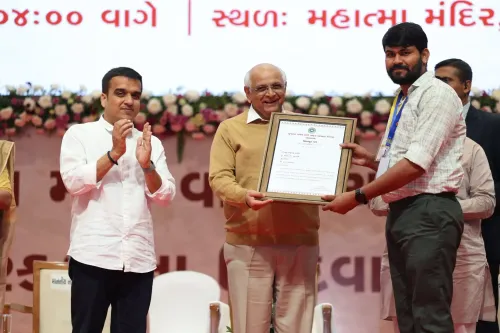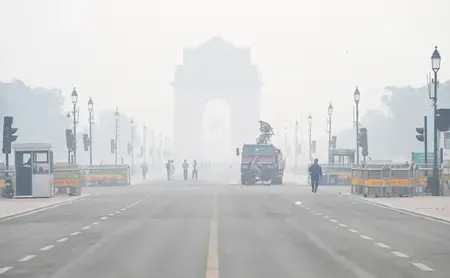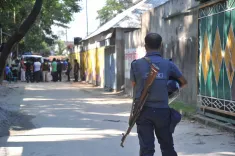Supreme Court Critiques Jharkhand Man's Neglect of Daughters During Saraswati-Lakshmi Puja

Synopsis
Key Takeaways
- Supreme Court criticized Sao for neglecting his daughters.
- Relief contingent on transferring land to daughters.
- Sao was convicted under Section 498A IPC.
- Family court mandated maintenance payments.
- High Court reduced his sentence due to lack of evidence.
New Delhi, Jan 24 (NationPress) The Supreme Court issued a harsh critique on Friday while addressing the appeal of Yogeshwar Sao, a resident of Hazaribagh, Jharkhand, who was convicted in a dowry harassment matter.
A bench that included Justice Surya Kant and Justice N. Kotiswar Singh condemned the appellant for his lack of care for his daughters and mistreatment of his spouse.
The bench questioned, "What kind of man are you who does not even care for his daughters? How can we allow such a heartless person to come to our court? All day at home, sometimes Saraswati Puja, sometimes Lakshmi Puja... and then all this."
The court underscored that any potential relief for the petitioner would be contingent upon him agreeing to transfer agricultural land to his daughters.
Yogeshwar Sao, also referred to as W. Sao, hailing from Katkamdag village, was found guilty in 2015 under Section 498A of the Indian Penal Code by the Chief Judicial Magistrate Court of Hazaribagh, which determined he had harassed his wife, Poonam Devi, for a dowry of ₹50,000, resulting in a sentence of two-and-a-half years in prison.
Sao and Devi were married in 2003 and had two daughters. In 2009, Poonam Devi lodged an FIR accusing him of dowry harassment, forced surgical removal of her uterus, and her husband’s subsequent remarriage.
She also submitted a petition in the family court seeking maintenance for herself and her daughters. The family court mandated Sao to pay ₹2,000 monthly to his wife and ₹1,000 monthly to each daughter until they reached adulthood.
Sao contested his conviction in the Jharkhand High Court, which affirmed the trial court's decision in September 2024.
However, the High Court lessened his sentence to one-and-a-half years, citing insufficient evidence regarding the claims of forced surgery and remarriage. Moreover, a fine of ₹1 lakh was levied against Sao.
Subsequently, Sao appealed to the Supreme Court in December 2024 seeking relief.
During the proceedings, the Supreme Court reiterated the necessity of prioritizing the welfare of Sao's daughters and denounced his actions. The court clarified that no relief would be granted unless he exhibited accountability, particularly by transferring his agricultural land to his daughters.










